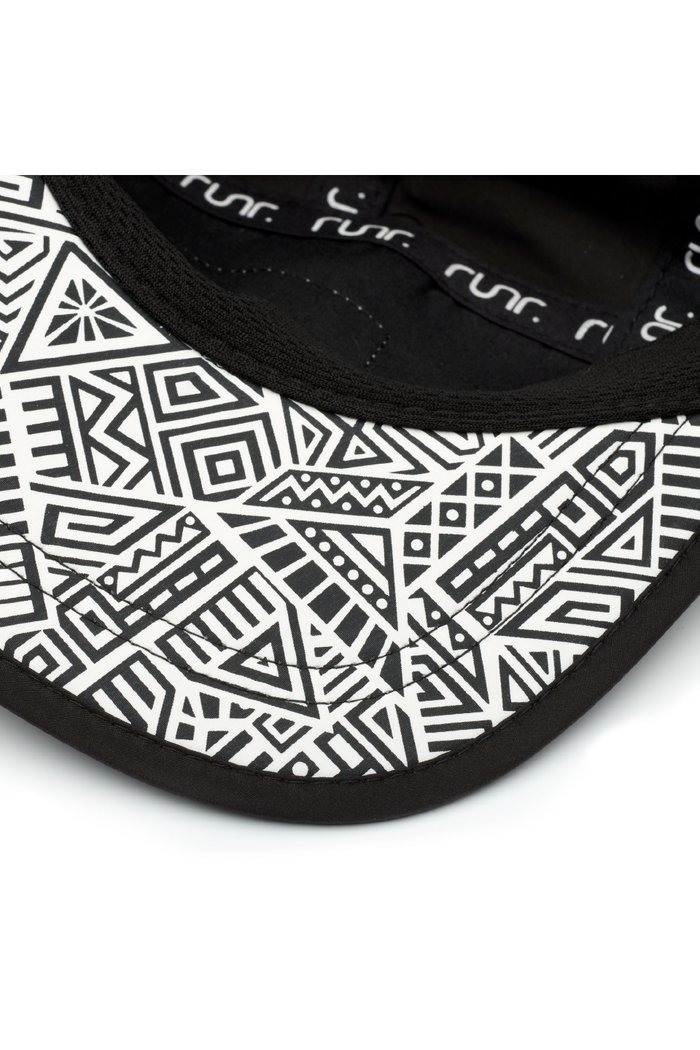I've run hundreds of races - marathons, ultras, halfs, 10k, 5k; road, trail, Parkrun. It's a joy and a task! It's freedom and it ties you in to all sorts of plans! It gives you headspace and makes you distracted. But it's great. And I feel good, if tired and achy to various extents year round!
As I continue to run into my 50s, I'm still improving and making PB's. I think I train better and I treat my body better (I'm a vegan, non-smoking, almost teetotal dad!). I've had lots of minor injuries but nothing too debilitating. I know so much more about running than I did when I was younger and I know more about how to get the best out of myself. Here's the things that I focus on, see if they work for you too (or store it away for the future!):

3. Kit: get kit that actually fits you, not too tight and not too baggy. This is more important to looking good than colours or style. That said, dress conservatively – you're not 23 anymore – classic and understated is much better than showy (dad jokes as clothes? Nope!). There's no need to pay too much money but buy kit that washes well in the machine with all the general washing from your household. Separate washing and handwashing is too much hassle for this boy. And don't try and look like an Olympian or personal trainer – 'all the gear, no idea' – be who you are! Dress down – training/race kit is for those occasions.

4. Nutrition: I'm a vegan and I hardly drink any alcohol. That aside, it's very important to track what you eat and drink (I use a free app My fitness pal to help me gauge calories and maintain a balanced diet). It's well known that fresh vegetables and fruit are the best things to eat, so try and eat a greater proportion of them over time. I didn't learn this as child and it's been a constant learning curve as an adult to get used to eating and cooking healthily. Eat a wide range of different kinds and colours of foods, and include pulses and beans. And avoid 'empty' calories on the whole (without being too ridiculously puritan), so crisps and chocolate are rare treats.
5. Races/targets: at the beginning of each year, I set some general targets (e.g. 5k PB, half marathon PB) and schedule in training and races around those. I tackle big challenges every other year, but I always do something nice at xmas. Plot these events in your calendar. But, spread them out overt the year – only training for one at a time. If you try and train for more then one event at the same time, you'll be average at them all. Focus on one thing at one time. Don't be over ambitious – that's really important. Know your body. Over-training will come back to get you with niggles and injuries – and I've had my share of these (sore hamstrings, sore glutes, painful knees, shin splints, thigh strain, sore Achilles). I use Nike + for running (and Strava for cycling). Use these apps to help plot steady progress, evolution not revolution. Use social media to celebrate but don't live your training/racing life by it!

6. Recovery: eating soon after a session is important, with a good mix of carbs and protein. Don't drink too much liquid, a coffee soon after you get back helps with muscle recovery. After that, rehydrate gently, drinking often but little. I do try that thing where you put your legs up wall or raise them up with a stool. Does it help? Who knows?! I sometimes stretch and use a roller, the latter if I have a niggle but I'm not sure I've personally seen the benefits of either.
7. Sleep: really important for recovery (and not being a grumpy old git!), so make your bedroom calm, dark, cool. Start chilling by 9.00pm so you can head to bed around 10.00pm. And no screens in the bedroom – it's anti-social and the blue light wrecks your sleep. Take daytime naps anytime you can, on the sofa, on a train journey. Even shutting your eyes and chilling for 5 minutes is worth having.
8. Training plans: start from where you are and progress gently and evenly, with a good range of different kinds of activities. Mix it up to make sure you don't get bored. And cross train – I cycle and run all the time but swimming is also excellent (I tend to do this only on holiday!). Don't register for an event and then work backwards from there as your target time. Benchmark yourself to understand how fit/strong/quick you are now and then plot a training plan from there. Always be prepared for some setbacks – work, family commitments, as well as some sessions where you don't hit your training targets. Don't let this knock your resolve. I tend to plan a month to six weeks ahead, on a rolling training programme, so I can tweak my plans depending on commitments and performance. I'm not a member of a running club, but I do tag along from time to time (Tribe and Good Gym are great), mixing with different people helps to keep things fresh - and my competitive nature means I try harder!

9. Mix it up: I have a mix of training activities I use - hill run, long run, fartlek, intervals, trail, tempo, recovery run - and I exercise almost every day (running or cycling). Don't try and squeeze these all in very week. Perhaps two key ones that are preparing you for the next event (I tend to build up to a race simulation so I know how I'm progressing), then a couple of others that vary. I aim to increase my monthly mileage up to a month before, maybe up to 180 miles/month, then taper over the last month (which I hate!). And I love running on holiday, one of the best things ever! You get to see a different side of where you're staying and know how to get around!

10. Weight: keeping your weight in check is hugely helpful for racing (and self-esteem) but gets harder as you get older. Weigh yourself regularly, but not every day as there are variations and you risk becoming a bit obsessive. And use 'your' own judgement about the 'right' weight for you, not what anyone else says. If you need to lose weight, do it slowly, for example, half a stone over a year. That way the weight is more likely to stay off – the key is understanding your diet and adjusting it, then sticking with that adjustment forever more. Eat regularly throughout the day – you can't let yourself get hungry otherwise there's a risk you'll eat badly. It's different at bedtime - it's not a bad idea to go to bed feeling a bit hungry. Feeling full can disturb your sleep and being ready for breakfast (the most important meal of the day) is good!
That's it! Don't fall out of love with running, all relationships take patience and commitment. Be ambitious, but be satisfied. My motto is 'keep on keeping on'! Good luck!
-------------------------------------------------------------------
We did chuckle after reading this from Harvey and hope lots of you can relate to it!
You can follow Harvey as he continues his running journey through the his accounts:













